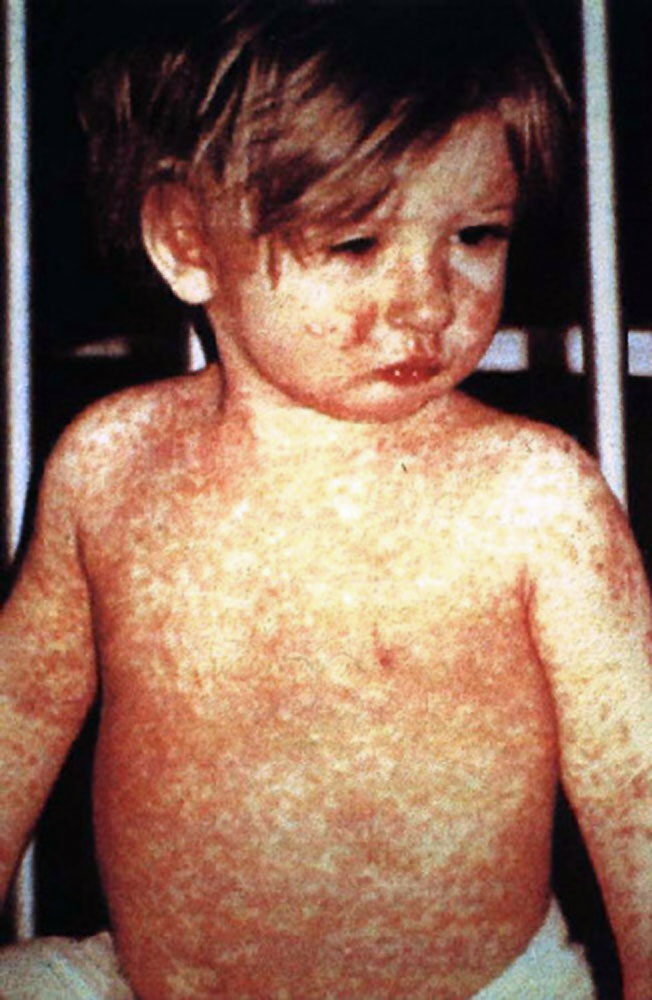Alberta Mother Urges Vaccine Education Following Infant's Measles Case

In a poignant call to action, Morgan Birch, a resident of Fort Saskatchewan, Alberta, is urging Canadians to prioritize vaccination awareness after her four-month-old daughter, Kimie Fukuta-Birch, contracted measles. Birch emphasizes the preventability of the disease, noting that Kimie was ineligible for the measles vaccine due to her age. This personal experience has led Birch to advocate for parental education on vaccinations, highlighting the responsibilities that come with parenthood. "It’s your responsibility to educate yourself with the help of your pediatrician and health-care professionals," Birch stated, expressing her concern that her daughter’s infection could have been avoided if more individuals in her community had received the vaccine.
Measles has resurged in Alberta, with nearly 1,380 reported cases since March 2024, surpassing the total number of cases in the United States. Immunization rates in Alberta remain troublingly low; by age two, only 80% of children had received the first dose of the measles, mumps, and rubella (MMR) vaccine, and a mere 68% had received both doses, according to data from Alberta Health Services (2024). In comparison, the World Health Organization recommends a 95% vaccination rate to effectively prevent outbreaks.
Birch's anxiety extends beyond her daughter's immediate health concerns. She fears potential long-term complications, citing the seriousness of measles, which can lead to severe health issues. "It’s not just that parent or child who it affected when they don’t vaccinate; there’s a whole other population that needs to be protected by vaccines," she noted, emphasizing the communal aspect of vaccination.
The situation is not isolated to Alberta. New Brunswick has also reported a measles outbreak, with regional medical officer Dr. Kimberley Barker indicating that vaccine hesitancy is contributing to the rise in cases. She has noted that busy lifestyles and underestimating the seriousness of infections are barriers to vaccination. In response, health officials are ramping up immunization campaigns as schools reopen in September, aiming to facilitate vaccinations for families with tight schedules.
The implications of these measles outbreaks extend beyond immediate health crises. According to Dr. Shelly Bolotin, director of the Centre for Vaccine Preventable Diseases at the University of Toronto, measles is particularly dangerous for children, as it can lead to a phenomenon known as measles immune amnesia, where the virus erases pre-existing immunity, increasing susceptibility to other infections. This condition can have long-lasting effects on children’s health, making vaccination even more crucial.
Dr. Anna Banerji, an associate professor of pediatrics at the University of Toronto, adds that complications from measles can include pneumonia, hepatitis, and encephalitis, with dire outcomes such as deafness or blindness being possible, particularly in malnourished children. She stresses that while children typically receive the first dose of the MMR vaccine at 12 months, those as young as six months may be vaccinated if they are traveling or in outbreak areas, although they will still require two additional doses later.
As Birch reflects on her daughter's recovery, she expresses her ongoing fears. “She could have died,” she said, recalling the emotional turmoil of watching her infant battle a disease that was once eliminated in Canada. The resurgence of measles, a disease that Canada had successfully eradicated in 1998, poses a significant threat to public health. Birch's experience serves as a stark reminder of the critical importance of vaccination, not only for individual protection but for community health as well.
The ongoing situation underlines the necessity for public health education and the importance of maintaining high vaccination rates to safeguard the health of vulnerable populations, particularly infants and those unable to be vaccinated. As Canada grapples with these outbreaks, the urgency for informed public discourse on vaccinations and their paramount importance in preventing disease transmission becomes increasingly clear.
Advertisement
Tags
Advertisement





